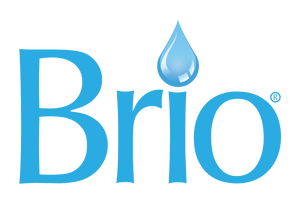Staying hydrated has so many benefits. You’ll feel better physically and mentally, your skin and hair will be healthier, and you may even feel like you have more energy. But could regular fluids actually stop you from getting ill?
Proper hydration has a critical part to play in your immune system. Water does so much for your body, from ensuring good blood volume to transporting micronutrients. Understanding the connection between good hydration and immune system health could help you live a healthier, happier life.
Understanding Fluids, Electrolytes., and Energy

Your body needs fluids, electrolytes, and energy (FEE) to build a healthy immune system. Fluids allow electrolytes, minerals, and vitamins to quickly pass to where they’re needed in the body.
For this process to work, you need two main components: hydration and a micronutrient-rich diet. That means ensuring you’re eating plenty of fruits and veggies or, where appropriate, taking supplements. Always check with your doctor before taking additional vitamins and minerals.
Diets high in salt and fat can make you feel thirstier and can also negatively impact your heart health and blood pressure. A diet like this can also impact your immune system by being generally low in all-important nutrients. Replacing a double cheeseburger with a chicken salad, for example, could add vitamins A, C, and K from lettuce, tomatoes, and spinach, respectively.
Blood and the Lymphatic System

As well as supporting the transportation of micronutrients, you need water to ensure a healthy blood supply. The liquid that makes up your blood is approximately 90% water. It makes sense, then, that dehydration can severely impact your body’s ability to produce the right volume of blood.
Another important link between hydration and immune system health is how fluids impact the lymphatic system. Your lymph nodes or glands, found in the armpit and neck, among other places, filter fluids in your body. They can trap viruses and other pathogens and prevent you from becoming sick. While swollen lymph glands can indicate that you’re fighting off an infection, they can also be a symptom of dehydration.
You need to drink plenty of water to keep your lymphatic system working at optimal efficiency.
Best Drinks for Hydration

Of course, a cool glass of water is the most refreshing and hydrating drink you can reach for. Clean water contains virtually no salt and no harmful additives, making it the safest source of pure hydration.
Unfortunately, not all water is as clean and pure as you might think. While the Safe Drinking Water Act (SDWA) is in place to regulate water quality and protect public health, water from your faucet can still contain contaminants.
These include but aren’t limited to:
• Chlorine
• Dust
• Rust
• Dirt
• Volatile organic compounds (VOCs)
• Harmful heavy metals
• Organic matter
That’s why so many people opt for water filters for their homes, to improve the water’s quality, taste, and health benefits.
However, other drinks can help keep you hydrated and boost your immune health.
Tea
Whether you love an iced tea or a hot herbal infusion, these drinks can be hydrating and tasty. Just remember that some iced teas can be high in sugar and caffeine, so drink in moderation.
Decaffeinated Coffee
Because caffeine is a diuretic — meaning it makes you urinate more — drinking vast volumes of coffee isn’t recommended for hydration. Swap out a few cups for decaf to avoid drying out, especially in summer.
Juice
Fruit and veggie juices are high in water content and may include helpful micronutrients. Tomato juice, for example, is high in vitamin C, closely associated with improved immune health. Consider diluting juices to make them more hydrating and to reduce your sugar intake.
Milk
Milk is a naturally hydrating drink when consumed in moderation, and if you’re concerned about its fat content, there are plenty of low-fat options. As well as being high in protein, milk is a great source of vitamins D and A and the mineral zinc, all useful for protecting your immune system.
Hydration and Immune System Health: Protecting You and Your Family

Ensuring your household has access to healthy, contaminant-free water is simple and more affordable than you might think. Reverse osmosis filters remove contaminants, from heavy metals to organic compounds, while UV light-based filters can provide germicidal benefits. Investing in the right filtration system can help you boost your family’s immune health by ensuring they always have access to regular hydration.
To learn more about staying hydrated and ensuring your home has access to clean, filtered water, contact the experts at Brio Water or browse our collection of whole house filtration systems to find the right match for your home.




